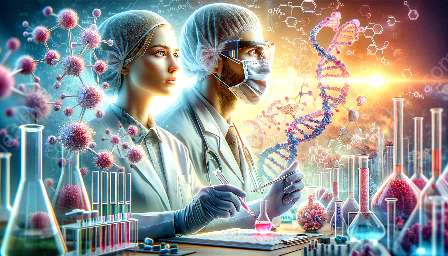Toxicology is a multidisciplinary field that plays a critical role in both medicinal chemistry and pharmacy. It involves the study of toxins, poisons, and their effects on the body, as well as the mechanisms of toxicity and ways to mitigate harmful effects. Toxicology is essential for understanding drug interactions, developing new medicines, and ensuring the safety of pharmaceutical products.
The Role of Toxicology in Medicinal Chemistry
Toxicology is closely linked to medicinal chemistry, which focuses on the design, development, and synthesis of pharmaceutical drugs. Medicinal chemists rely on toxicological studies to assess the safety and efficacy of potential drug candidates. Understanding the toxic effects of chemical compounds helps medicinal chemists make informed decisions about drug design and development, ultimately leading to the creation of safer and more effective medications.
Toxicology and Drug Development
Drug development involves a complex process that requires rigorous testing to ensure the safety and efficacy of pharmaceutical products. Toxicological studies are an integral part of this process, as they help identify and evaluate potential risks associated with new drugs. Toxicologists collaborate with medicinal chemists and pharmacologists to assess the toxic effects of drugs and promote the development of novel therapeutic agents.
Toxicity Testing and Pharmacokinetics
Pharmacokinetics, the study of how the body processes drugs, is closely intertwined with toxicology. Understanding the absorption, distribution, metabolism, and excretion of drugs is essential for assessing their toxicity. Toxicologists work alongside pharmacokinetic experts to evaluate drug concentrations in the body and determine potential toxic effects.
Regulatory Compliance and Safety Assessment
In the field of pharmacy, toxicology is vital for ensuring the safety and quality of pharmaceutical products. Regulatory agencies require comprehensive toxicological data as part of the drug approval process. Pharmaceutics professionals utilize toxicology studies to conduct safety assessments and ensure compliance with regulatory standards, helping to bring safe and effective medications to the market.
Toxicology and Poison Control
Pharmacists and poison control specialists rely on toxicological knowledge to provide crucial support in cases of poisoning and overdose. Understanding the toxic effects of various substances allows pharmacists to offer timely and accurate guidance to healthcare providers and patients, potentially saving lives and preventing further harm.
Advancements in Toxicological Research
Recent developments in toxicology have paved the way for innovative approaches to assessing toxicity and developing new treatment strategies. Cutting-edge technologies, such as organ-on-a-chip models and predictive toxicology tools, are revolutionizing the field and enabling more accurate and efficient toxicological assessments.
Conclusion
Toxicology is an indispensable component of medicinal chemistry and pharmacy, shaping the development, regulation, and safe use of pharmaceutical products. By understanding the mechanisms of toxicity and actively exploring new avenues for toxicity assessment, researchers and practitioners in these fields can continue to advance the safety and efficacy of medicines, ultimately benefiting patients and healthcare systems worldwide.


